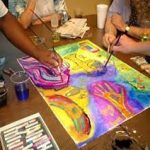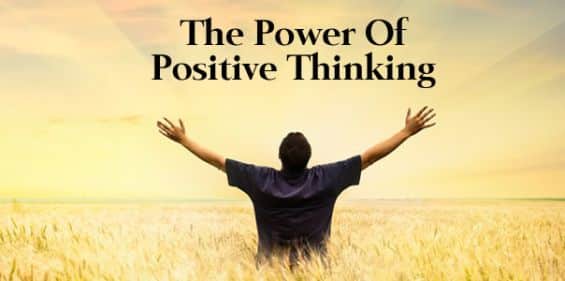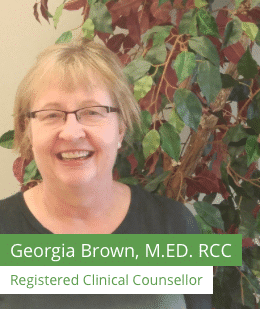
Unique Journeys
August 16, 2017
The Benefits of Expressive Arts Therapy: Across the Lifespan
November 24, 2017At our last OCCS counselling team meeting, one of the counsellors was visibly excited to talk about the successes a client of hers had experienced. We were all excited by the news and acknowledged that we needed to do more of this – share more of the positive outcomes we experience in our various counselling sessions.
That got me thinking about the power of the positive, especially related to counselling and what is known as ‘positive psychology’. How did this branch of psychology develop, by whom and how can it benefit our lives?
Although the term ‘positive psychology’ was thought to be first used in 1954 by Abraham Maslow (in his book Motivation and Personality), it was when Martin Seligman used it in 1998 as the theme for his presidential term with the American Psychological Association that the term gained more support. At that time, two other co-founders and Seligman attributed the development of positive psychology to their concern that psychology was focusing more on the negative – mental illness – and not giving enough emphasis on the inner strengths, virtues and positive elements of humanity.
Highlights of the development of positive psychology from the 50’s to the 90’s include support from the fathers of the humanistic movement (Maslow, Rogers, Fromm) and a study of ‘flow’ – the ability to ‘loose oneself’ in the moment when engaged in activities that ignite one’s passion, focus and energy. The benefits of flow include the experience of ‘good stress’ when one’s abilities are well matched to the challenge at hand. Flow increases self-confidence, excitement and well-being.
More recently, Seligman’s book Flourish (2011) explained the five parts of his theory of well-being with the acronym PERMA, that is Positive emotions, Engagement, Relationships, Meaning (purpose) and Accomplishments.
You – and I – will have greater well-being (think happiness, contentment, a more meaningful life) if we:
- Experience more and various positive emotions such as joy, happiness, excitement, satisfaction, awe and pride. These emotions are all connected to healthier social connections and a longer life!
- So – what actions will you take to create these emotions?
- Engage in activities that evoke and build on your interests. True engagement or flow involves passion, concentration and the complete absorption of oneself (losing self-consciousness). It requires the challenge of difficulty that IS possible to overcome.
- What actions will you take that will invite – or allow the time for – these kinds of activities in your life?
- Relationships – no surprise here! All relationships, especially those that are overall healthy – whether at work, family, romantic or platonic, are an important factor in increasing positive emotions. Relationships are the way we experience and spread positivity both in the good and bad times.
- What actions will you take to give time and energy to empower the important relationships in your life?
- Create meaning for and in your life, in something that is greater than yourself. Meaning motivates one to develop and reach goals.
- How will you create more meaning in your life?
- Accomplishments build self-esteem and confidence.
- What accomplishments will you pursue and master? They can be individual or involve others, either for fun or work.
Research indicates that the effects of Positive Psychology Interventions (PPI) – such as developing a gratitude letter, developing more optimistic thinking, replaying positive life experiences and socializing with others – last from 3-5 months after the intervention and in some cases, well beyond.
The writer acknowledges Wikipedia (Positive Psychology) as the major source.
This blog post was written by OCCS’s Clinical Counsellor:
t: 250.718.9291






